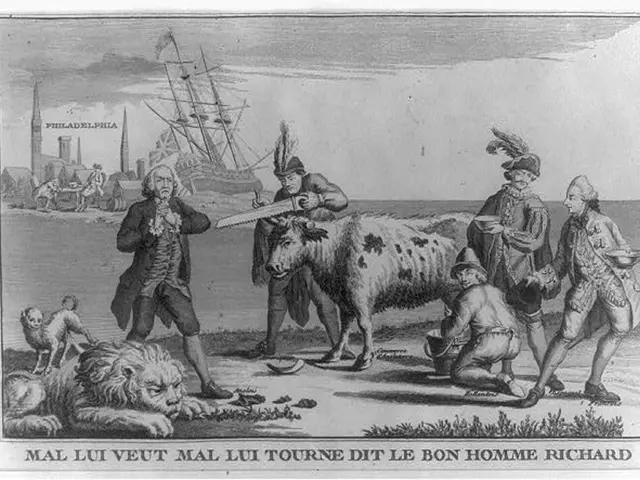World leader encounters with nation heads and international bodies during UNOC auxiliary sessions.
In a busy day on the sidelines of the 3rd United Nations Ocean Conference (UNOC 3), Vietnam's Prime Minister Pham Minh Chinh convened with an array of international leaders and representatives, all gathered in Nice, France.
Among these conversations, Prime Minister Chinh was front and center for a special treaty event advocating for the signature and ratification of the Agreement under the United Nations Convention on the Law of the Sea concerning the Conservation and Sustainable Use of Marine Biological Diversity of Areas Beyond National Jurisdiction (BBNJ Agreement), often referred to as the High Seas Treaty. Vietnam made a significant mark by completing internal procedures for the treaty and formally presenting its ratification document to the UN, showcasing its proactive stance and its influential position among the nations championing the treaty.
The prime minister's efforts underscored Vietnam's role as a key player in the international community, stepping up to work alongside global partners on pressing ocean and marine concerns.
However, the engagements didn't halt at the treaty event. Throughout the conference, Prime Minister Chinh carouseled through short meetings with leaders from various countries and international organizations to reinforce ties and expedite collaborative actions on marine conservation and sustainable ocean use. These discussions reiterated Vietnam's commitment to international law, particularly the 1982 United Nations Convention on the Law of the Sea (UNCLOS), and its pledge to implement Sustainable Development Goal (SDG) 14 on ocean conservation.
The outcomes of UNOC 3 carry substantial weight, setting expectations for future global, regional, and national marine governance policies that stress conservation, sustainable use, and resilient ocean governance practices. It's expected that these agreements will result in a unified push for a healthier ocean and better resource management.
In addition, UNOC 3 emphasized the importance of diversifying financial, scientific, and technological resources to effectively tackle the challenges threatening our oceans. Prime Minister Pham Minh Chinh was evidently a driving force in these efforts, positioning himself as a leader in sustainable ocean management.
In a nutshell, Prime Minister Pham Minh Chinh's active participation in UNOC 3 demonstrated Vietnam's strategic and cooperative approach to addressing global ocean challenges while maintaining fidelity to international law on marine conservation.
Prime Minister Phạm Minh Chính met with Rebeca Grynspan, Secretary-General of UN Trade and Development on the sidelines of the 3rd United Nations Ocean Conference. VNA/VNS Photo
Insight: UNOC 3, a pivotal event, places Vietnam in a prominent position among nations committed to addressing the urgent need for ocean preservation and management. The treaty event, specifically focusing on the BBNJ Agreement, marked Vietnam's dedication to the cause and set a precedent for other nations to follow.
- The BBNJ Agreement, also known as the High Seas Treaty, witnessed Vietnam's ratification, signifying its commitment to preserving marine biodiversity beyond national jurisdiction and promoting sustainable use.
- In the midst of diverse discussions at UNOC 3, Prime Minister Pham Minh Chinh held a meeting with Rebeca Grynspan, Secretary-General of UN Trade and Development, reinforcing ties and collaborative efforts for sustainable ocean use.
- The discourse at UNOC 3 highlighted the need for diversifying resources, including AI and labor, to tackle the challenges threatening our oceans, with Prime Minister Chinh emerging as a proponent for innovative solutions in marine conservation.
- As global politicians grapple with the complexities of war-and-conflicts, politics, general-news, and business, the UNOC 3 serves as a platform to prioritize marine conservation, underscoring the interconnections between the health of our oceans and the well-being of nations.








